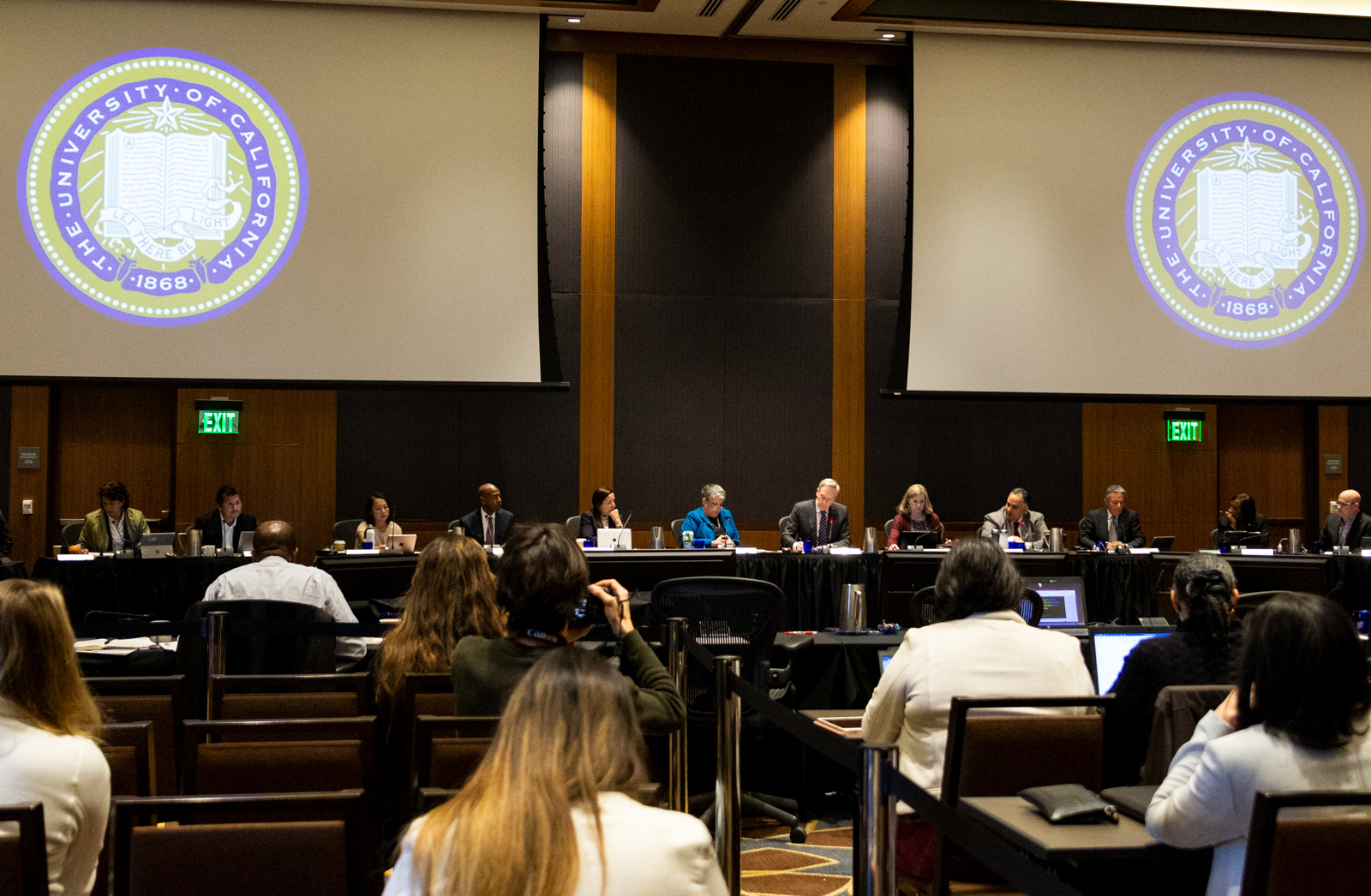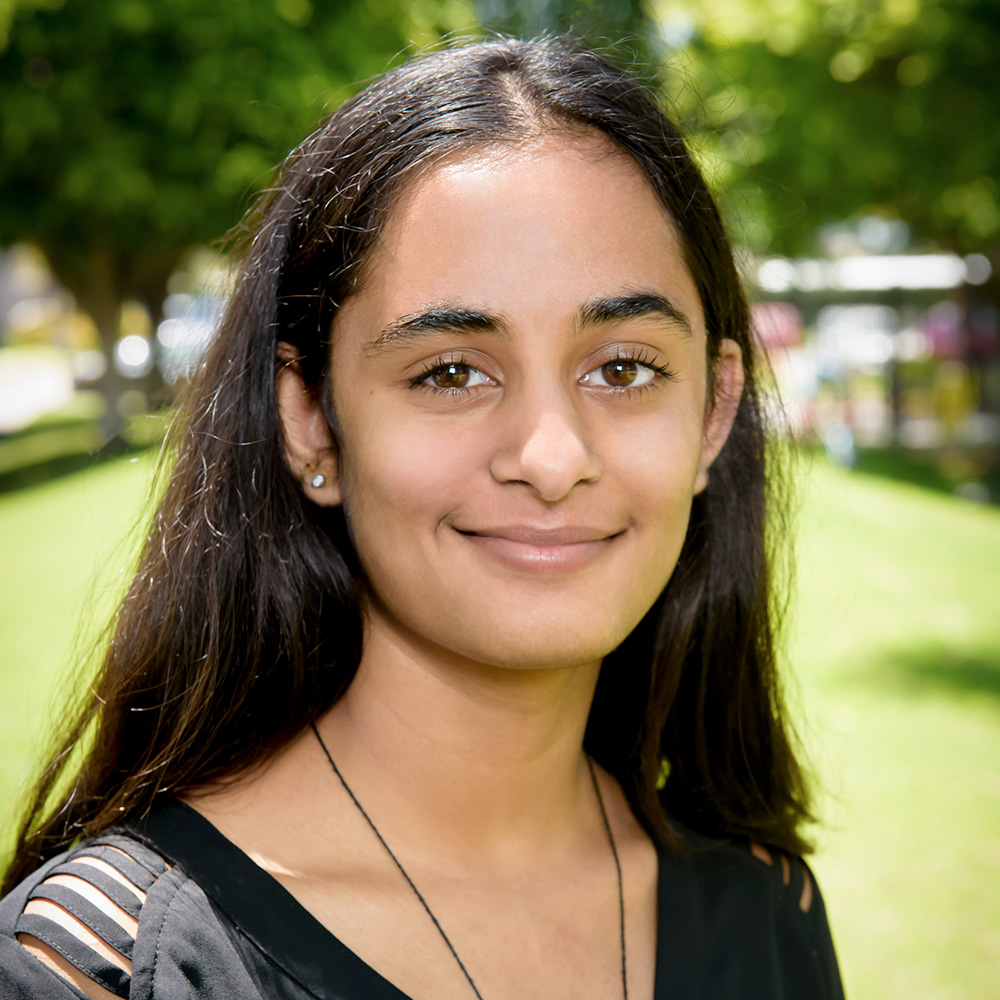UC Regents recap – May 19-21

The UC Board of Regents discussed the coronavirus outbreak, potential fall plans and funding, and it also voted on the use of standardized testing during its May meeting. (Daily Bruin file photo)

By Saumya Gupta
May 24, 2020 6:20 p.m.
The Board of Regents, the governing body of the University of California, met for its May meeting from Tuesday to Thursday via teleconference. The board discussed the coronavirus outbreak, potential fall plans and funding, and it also voted on the use of standardized testing during the meeting.
Tuesday
Finance and Capital Strategies Committee
- The regents approved an additional $20.2 million to the partial preliminary plans funding for the Irvine Campus Medical Complex. This would allow the campus to complete a schematic design for its new hospital.
- The regents approved $23.2 million in preliminary funding for the Mission Bay East Campus at UC San Francisco.
- The regents approved $3 million in preliminary plan funding for the planning and design of the Integrated Center for Design and Construction at Parnassus Heights, which will be part of the UCSF campus.
- The regents approved an additional $130 million in preliminary plan funding for a new hospital at UCSF Helen Diller Medical Center at Parnassus Heights. The money will also be used to address seismic deficiencies for acute inpatient care and outdated clinical facilities.
Investments Committee
- Jagdeep Singh Bachher, chief investment officer of the UC, announced that as of May 18, the UC manages $125 billion in assets. He also said that over the past six years, the UC’s assets have grown by $27 billion.
- Bachher also announced that all $125 billion of the UC’s assets are fossil-free. At the September regents meeting, he announced that only the endowments were fossil-free.
Special Committee on Basic Needs
- The committee discussed what has been done for students still living on campus. The CARES Act emergency grants provide $130 million exclusively for UC students, said Shawn Brick, director of student financial support.
- Brick said the UC acknowledges the inability for work study students to work effectively or at all and has continued to pay students. The UC has also made sure that students who withdrew from the spring quarter retained their financial aid, he added.
- About 80% of the funds from the CARES Act emergency grants have been delivered to students so far. However, the grant only includes students living in the United States, leaving out undocumented and international students. Existing funds have been set aside, as a start to help support these groups.
- Academic Senate Chair Kum-Kum Bhavnani said graduate students may be unable to afford basic needs such as food and health supplies, and she added that she thinks they should be treated just as well as undergraduate students.
- Staff Advisor Kate Klimow said she thinks the UC staff should receive the same benefits as students, such as by providing them with groceries and health care products. She said that UCLA and UC Berkeley have taken the initiative to assist their staff, and added she wants to see a UC-wide push to take better care of the staff that are still keeping the campuses in order.
Wednesday
Board of Regents
- During public comment, many students objected to the UC’s involvement with the Thirty Meter Telescope on Mauna Kea in Hawaii.
- UC President Janet Napolitano announced that research labs unrelated to COVID-19 will start to open up.
- Juan Sánchez Muñoz was unanimously approved by the UC Board of Regents to be the next chancellor of UC Merced.
- The UC Board of Regents approved a set of principles that are supposed to serve as standards for the UC campuses to help determine their plans for the fall. Once the campuses meet the standards, they will determine whether they should operate remotely or use a hybrid model in the fall.
Health Services Committee
- Carrie Byington, executive vice president and head of UC Health, said Californians should prepare for a similar quantity of cases of COVID-19 throughout the summer. She also said she expects to see additional cases in the fall and winter.
- Until a vaccine and therapeutics are developed to treat COVID-19, Byington said it is important to promote hand-washing, the tracking of symptoms, social distancing and universal mask-wearing.
- Byington said it is going to take a culture of accountability in order to stop the pandemic, through practices such as not coming into work when sick and answering truthfully about symptoms.
Academic and Student Affairs Committee
- Michael Brown, provost and executive vice president for Academic Affairs at the UC, discussed the UC’s transition to remote learning, which started in March, which was caused by the coronavirus pandemic.
- Brown said campuses faced some challenges during the transition to remote learning, such as the inability to use sophisticated instructional tech tools because of the shelter-in-place order, as well as difficulties with transitioning lab and studio courses online and proctoring tests online.
- He added that some students are disproportionately affected by their environment during the pandemic. While some students may be thriving, other students may not be performing as well because of a lack of an isolated space to participate in courses, for example.
- Regent Peter Guber said he thinks the UC needs to coach teachers on how to instruct online so the curriculum is engaging for students.
Finance and Capital Strategies Committee
- Paul Jenny, interim executive vice president and chief financial officer at the UC, said the estimated impact of COVID-19 was $1.2 billion through April 30. He added that the UC does not have any certainty about the pandemic’s trajectory or its long-term impact on the economy or higher education.
- The CARES Act has provided $288 million for UC medical centers and $260 million for emergency grants for students and institutional costs, Jenny said.
- Student observer Aidan Arasasingham, government relations chair of the UC Student Association, expressed concern over proposed budget cuts for next year and said that UC students, especially undocumented students and underrepresented students of color, deserve more funding in times of crisis.
- The UC Board of Regents voted to approve the fiscal year 2020-2021 budget as a continuing resolution that allows it to be worked on until the July regents meeting, when it will come before the board for a vote.
Governance Committee
- The governance committee voted to amend a regent policy to specify procedures on allegations of misconduct involving board members. A three-member regent panel will oversee this process.
- The amendment will hold regents to standards expressed in the University’s Sexual Violence and Sexual Harrassment Policy for handling allegations of sexual misconduct by University employees. Complaints of regent misconduct that fall under the University’s SVSH policy will go through the Title IX office.
- The amendment also specified that complaints of misconduct that do not fall under the University’s SVSH policy will be overseen by a neutral complaint resolution officer. The complaint resolution officer will be selected by the regent panel to oversee things such as the determination of whether an investigation is appropriate, the selection of an investigator and the recommendation of sanctions. The regent panel may recommend different sanctions and actual sanctions will be imposed by the board.
- Committee members expressed concern over whether the amendments give the regents too much power to govern themselves. Student Regent Hayley Weddle added she is concerned whether the revisions will hold the regents accountable, since the amendment will maintain the three-regent panel to oversee matters, and may not provide a fair process for those who submit complaints.
- Regent Charlene Zettel said even though the regent panel can recommend different sanctions than those provided by the investigator, the original recommendations will also be presented to the full board, and the ultimate decision of sanction rests with the entire board.
- The committee also voted to provide a scholarship of $22,859 for the student regent and the student regent-designate. The scholarship will be adjusted depending on cost of living increases.
Thursday
Board of Regents
- Jason Rabinowitz, secretary-treasurer of Teamsters Local 2010, called on the UC to support workers who are putting their lives on the line to work during the COVID-19 crisis. Rabinowitz said this is not the time for layoffs, reductions in pay or other measures that will hurt workers.
- Carlos Alarcon, a UC Riverside student and representative for the UC Undocumented Student Coalition, said the UC USC condemns any cuts to the undocumented student community. He said a proposed budget cut, even though it was taken off the agenda, caused a panic among the undocumented student community.
- The UC Board of Regents voted to phase out the use of the SAT and ACT in admissions through 2024.
Contributing reports by Olivia Tran, Seth Freitas, Jewelyana Lim and Sharon Zhen.


